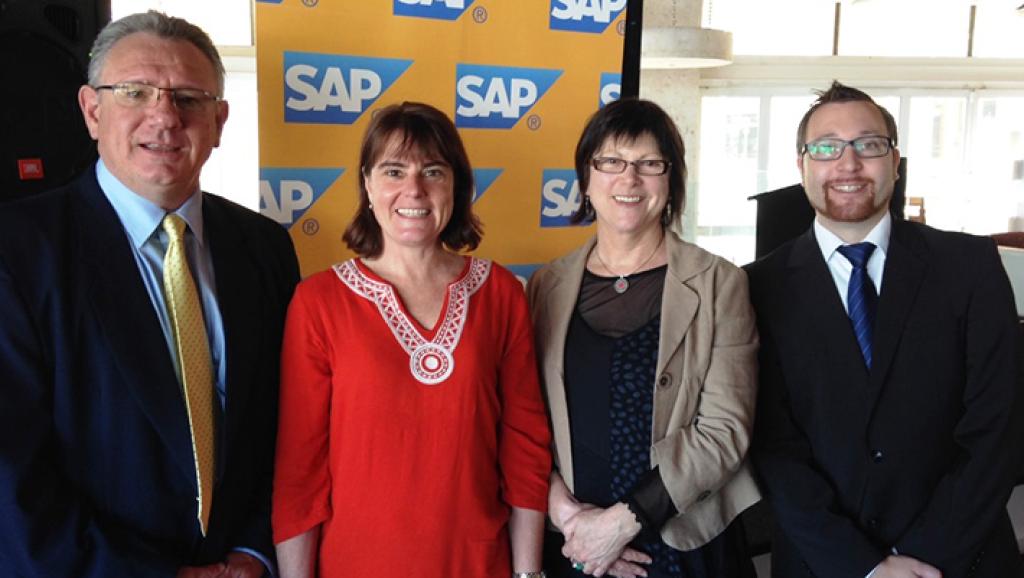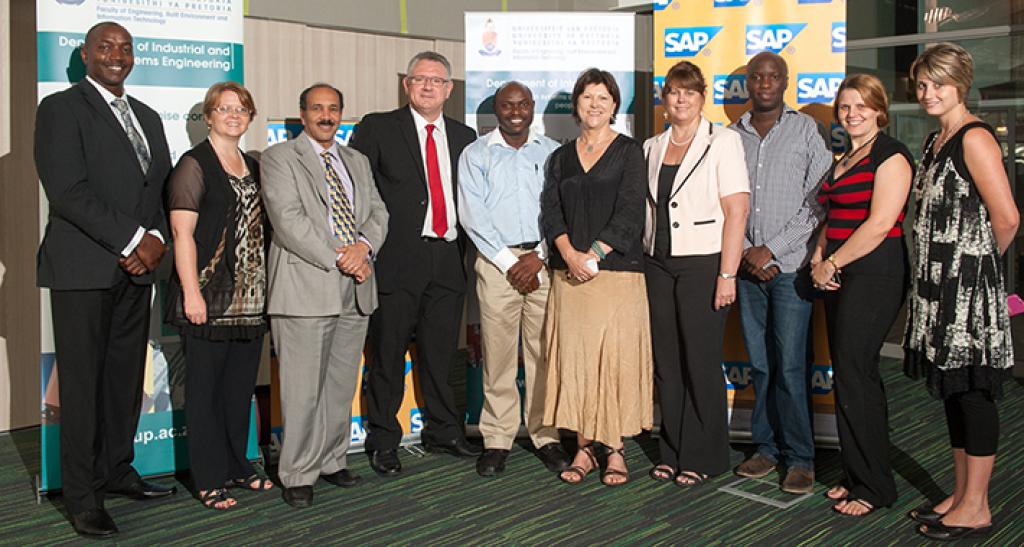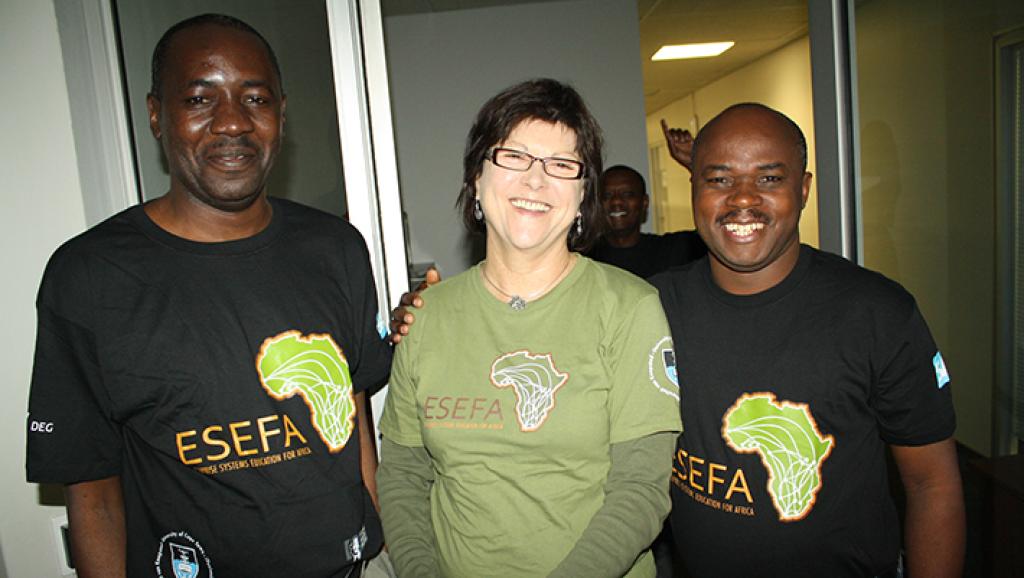
In August 2016 the ESEFA Programme transitioned to a financially self-sustainable education programme. The Department of Information Systems at UCT celebrated the success of the 3-year funded pilot project in July 2016, which culminated in close to 4000 students across Sub-Saharan Africa being trained in Enterprise Systems fundamentals using SAP. Read more here.

Background
The Enterprise Systems Education For Africa (ESEFA) project phase ran from September 2013 to 2016 through a ground-breaking partnership between the University of Cape Town’s (UCT) Department of Information Systems, the Otto-von-Guericke University Magdeburg (OVGU) in Germany and market leader SAP with its SAP University Alliances programme.
The ESEFA project was tasked to develop an Enterprise Systems (ES) education platform, curriculum and community for Sub-Saharan Africa (SSA).
The project was co-financed by DEG (Deutsche Investitions-und Entwicklungsgesellschaft mbH) with public funds from the German Ministry for Economic Cooperation and Development, together with SAP SE.
The objective of the PPP-Project (Public Private Partnership-Project) was to establish an on-demand Enterprise Resource Planning (ERP) teaching and learning platform for (Sub-Saharan) Africa which is scalable and maintained independently from Africa. To achieve this objective extensive capacity building measures were carried out and a comprehensive toolset that allows blended learning (i.e. teaching can take place in many different ways and by using a variety of online and offline teaching methods) was developed and implemented.
The project team developed a curriculum and established an African university community to deliver ES / ERP education courses within the sub-Saharan region together with the business management software, solutions and services market leader SAP and OVGU, where the UCC (University Competence Center) Magdeburg provides access to the SAP ERP education systems.
The project objective during the 3 year funded phase was to develop a partnership with at least one large university close to a metropolitan in each of 9 sub-Saharan countries, as well as one other university in South Africa.

The partners developed a highly integrated course design. The curriculum consists of adjustable content to match regional market requirements and learning needs. Students learn about business processes and how they are mapped into large business applications. These Enterprise Systems courses for lecturers and students are offered in co-operation with partner African universities.
The partners have created a community of universities across Sub-Saharan Africa for Enterprise Systems education. The Department of Information Systems at UCT was in charge of the local project operation, curriculum development and support, marketing and roll-out during the 3 year funded phase, the objective having been to ultimately establish a sustainable business model for future Enterprise Systems education at universities in Sub-Saharan Africa.
University Partnerships
The university partners collaborated in conducting research and regional field studies which succeeded in driving collaborative cross-border research in ES teaching. A multi-dimensional research approach ensures a high quality and relevant curriculum and long-term sustainable Enterprise Systems education in Sub-Saharan Africa.
The need for qualified ICT personnel in African countries

Africa is a continent characterized by a huge diversity in the social and industrial sector. The growing Information and Communication Technology (ICT) sector in Sub-Saharan Africa has brought about substantive economic changes in the region which are influencing people’s lives. New industries are being established which are having a heavy impact on local job markets.In this context information technology plays a decisive role in Africa’s further economic development.
Growth in the small to medium-sized enterprise sector has led to an increase in the implementation of enterprise systems software in industry. Companies need highly skilled employees who are familiar with modern information and computer technology in order to manage complex tasks and projects. Consequently, there is a need to offer opportunities for professional development to future generations of employees to not only give them an in-depth understanding of highly integrated business processes, but also know-how of standard business software. Despite the trend towards Enterprise Systems adoption, the shortage of qualified ICT personnel remains one of the major challenges organisations in Sub-Saharan Africa are battling to overcome.
Knowing business processes and software applications
Various business areas and the management information of an enterprise, e.g. financial accounting, human resources, logistics, manufacturing, marketing etc., are all united in enterprise systems, thereby supporting information flow within an enterprise and the communication with outside market participants.
The software application can optimize resources making business processes more efficient. Having the ability to understand and work with these software applications is a major advantage for students in Africa who will be in the job market in the near future. A high quality education which includes enterprise systems experience and understanding being offered at African universities will contribute to overcoming current skills shortages of professional ICT personnel in African countries and thereby contribute to an increase in Africa’s competitiveness, productivity and growth.